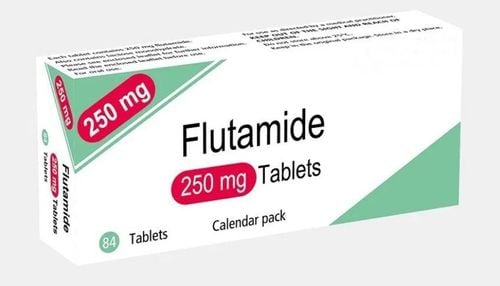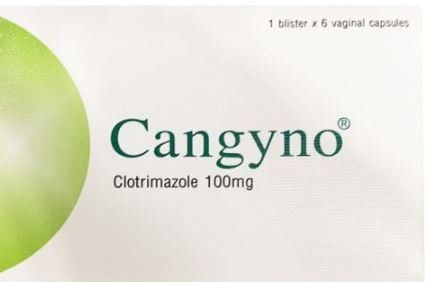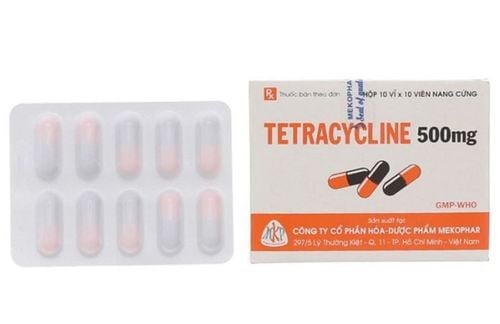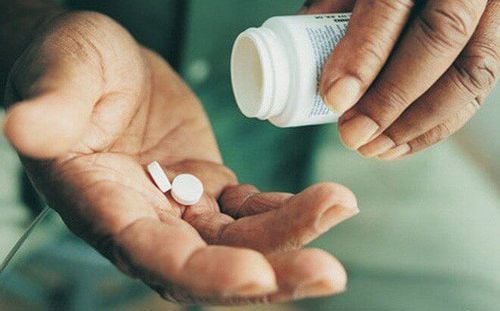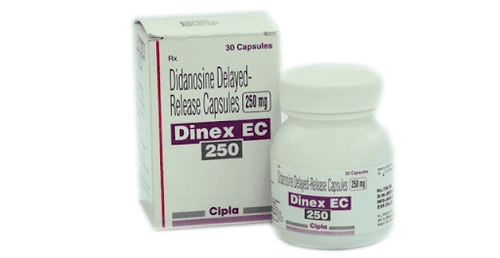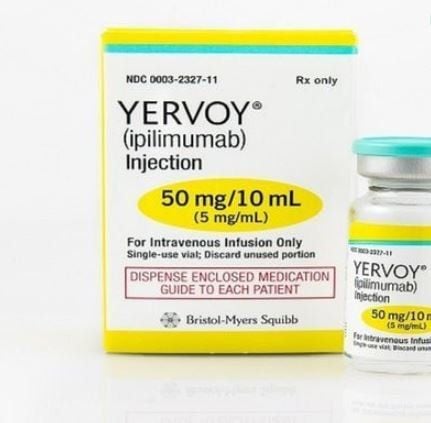This is an automatically translated article.
Accurate and timely male screening is important. Because early detection of the symptoms of certain health conditions can make treatment easier, and it's also an important factor in keeping men healthy.1. Why Men's Disease Screening Tests Are Important
Even if your body feels healthy, it is imperative that you plan for regular check-ups and health care. The purposes of this testing are:Screening men for disease Assess risk of future health-related problems Monitor health and support healthy lifestyle development Care and disease prevention, such as: getting vaccinated (annual flu shot and tetanus shot every 10 years...) Identify risk factors closely Keep in touch with your doctor in case of illness

Ngay cả khi cơ thể bạn cảm thấy khỏe mạnh thì bạn vẫn bắt buộc phải lập kế hoạch kiểm tra sức khoẻ và chăm sóc sức khỏe thường xuyên
2. Tests Men Should Do
2.1. Prostate cancer Prostate cancer is the most common cancer found in American men after skin cancer. It tends to be a slow-growing cancer, but there are also some types of aggressive, fast-growing prostate cancer. Screening tests can detect disease early, sometimes even before symptoms develop. Then, applying the treatment methods will bring high results.Prostate cancer screening is a screening for healthy men that may include a digital rectal exam (DRE) and a prostate-specific antigen (SPA) blood test. The American Cancer Society recommends that everyone see their doctor and discuss the possible benefits and risks of having an SPA test. These populations are typically: medium- and high-risk subjects, or men with a family history of prostate cancer.
2.2. Testicular cancer This uncommon cancer develops in a man's testicles, the reproductive gland that produces sperm. Most cases occur between the ages of 20 and 54.
The American Cancer Society recommends that all men be screened for testicular cancer. Men at high risk for this condition (family history or undescended testicles) should talk to their doctor for additional screening information. Some doctors recommend regular checkups if there are mild sensations such as a hard lump, a slippery bump, or a change in testicle size and shape.

Hiệp hội Ung thư Hoa Kỳ khuyến cáo rằng, tất cả nam giới nên sàng lọc ung thư tinh hoàn
After cancer develops, it can invade or spread to other parts of the body. The way to prevent this is to remove polyps before they become cancerous.
Screening for colorectal cancer at age 50 in people at average risk for the disease. Colonoscopy is a common test to detect polyps and colorectal cancer.
The doctor views the entire colon with an ultrasound device. Polyps may be removed at the time of testing. Or a similar test that checks only the flexibility of the lower part of the colon.
Some patients will opt for endoscopy, CT scan, or use of a dual-contrast barium enema with special X-rays, although if polyps are found, a colonoscopy is actually required to remove them.
2.4. Skin cancer The most dangerous form of skin cancer is melanoma. It begins in the specialized cells melanocytes that produce skin color. Older men are twice as likely to develop melanoma than women of the same age. Men are also two to three times more likely to develop non-tumor basal cell and squamous cell cancers than women. The risk of disease is increased with lifetime exposure to the sun and / or sunbathing ; Sunburn also increases the risk.
Skin cancer screening is recommended by the American Cancer Society and the American Academy of Dermatology regularly to check for any changes in marks on the skin, including: shape, color, and appearance. color and size. Finding the cause of skin cancer early can lead to more effective treatments and less distortion.
2.5. High blood pressure The risk of high blood pressure increases with age. It is also related to weight and lifestyle. High blood pressure can lead to serious complications without any prior symptoms, including aneurysms. However, it can be treated, and it can help reduce the risk of heart disease, stroke, and kidney failure.
High blood pressure screening with two blood pressure readings. The first (systolic pressure) is the pressure in your arteries when your heart beats. The second (diastolic pressure) is the pressure between beats. Normal blood pressure is less than 120/80. High blood pressure is 130/80 or higher. The interval between these two parameters is prehypertension, an important milestone that leads to high blood pressure.

Bạn nên sàng lọc huyết áp cao để kịp thời phát hiện bệnh nếu có
Determination of cholesterol levels done with a fasting lipid sample is a blood test that shows total cholesterol, LDL - "bad" cholesterol, HDL - "good" cholesterol as well as triglycerides (blood fats). Results provide condition- and information-specific information to help doctors figure out what to do to lower your risk of heart disease, stroke, and diabetes.
Starting at age 20, men should be screened if they are at risk for heart disease. Starting at 35, men need regular cholesterol testing.
2.7. Type 2 diabetes One-third of Americans develop diabetes when they don't know they have it. Uncontrolled diabetes can lead to heart disease, stroke, kidney disease, blindness due to damage to retinal blood vessels, nerve damage, and impotence. Especially when caught early, diabetes can be controlled and complications can be avoided with diet, exercise, weight loss, and medication.
Screening for type 2 diabetes is a fasting blood sugar test, a glucose tolerance test, or an AIC all used alone or together. Healthy adults should get tested every three years starting at age 45. If you have higher risks, including high cholesterol or blood pressure, you can start testing earlier and more often.
2.8. HIV virus HIV is the virus that causes AIDS. It is present in the blood and bodily fluids of infected people, even when there are no symptoms. It is spread from person to person through direct contact with mucus in the vagina, anal area, mouth, eyes, or an open wound in the skin.
Currently there is no cure for this disease completely. Modern treatments can prevent HIV from turning into AIDS, but these drugs can have serious side effects.
People with HIV may remain symptom-free for many years. The only way to know if you are infected is through a series of blood tests. The first test is an ELISA or EIA. It helps to find anti-HIV antibodies in the blood. However, it has the disadvantage of not showing infection and still giving a positive test result. So the second test done is a Western blot test.
Most newly infected people test positive for two months after infection. But, after 6 months, up to 5% of cases test negative. Safe sex by using barrier protection such as condoms is essential to avoid contracting HIV and other sexually transmitted diseases. Or people who use drugs should not share needles.
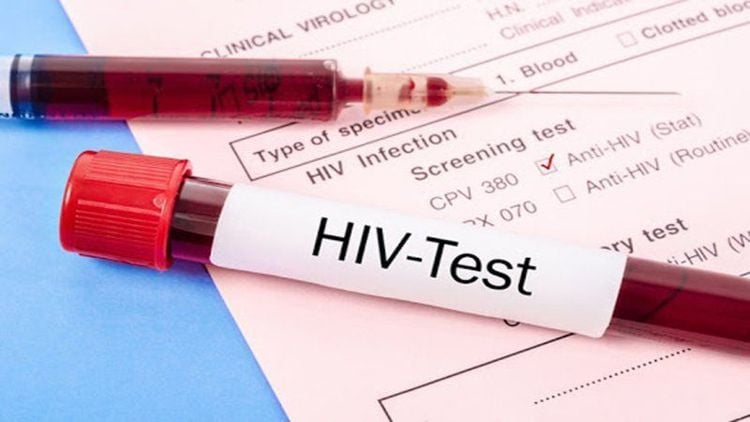
HIV là căn bệnh không có triệu chứng điển hình, vậy nên, để xác định chắc chắn bạn nên đi xét nghiệm
Eye exam for glaucoma based on age and risk of each subject:
Under 40 years old: check time after 2 - 4 years From 40 - 54 years old: after 1 - 3 years From 55 - 64 years: after 1 - 2 years Age 65 and older: after 6 - 12 months If you are in a high-risk group, you should talk to your doctor about getting screened earlier, more often . These populations include: African-Americans, people with a family history of glaucoma, prior eye injury, or steroid drug use.
Accurate and timely male screening tests are important to perform. Because early detection not only provides a high chance of treatment, but also helps you live a healthier life.
Currently, Vinmec International General Hospital has been implementing the General (Intensive) Cancer Early Detection Package - Male. Customers can choose the examination package with the following outstanding advantages:
Team of experienced domestic and international doctors with high expertise Comprehensive professional cooperation with domestic and international hospitals Hospitals such as Singapore, Japan, USA.... Comprehensive treatment and care for patients, multi-specialty coordination towards individualizing each patient. Having a full range of professional means to diagnose the disease accurately and give the appropriate treatment direction. Vinmec owns outstanding facilities, modern equipment system to help best support diagnosis for customers such as PET/CT, MRI, CT 640, international standard laboratory system, machine system The world's leading advanced ultrasound,... Thanks to these outstanding advantages, customers can perform ultrasound screening for common diseases in men and have appropriate treatment.
Please dial HOTLINE for more information or register for an appointment HERE. Download MyVinmec app to make appointments faster and to manage your bookings easily.
Reference source: webmd.com



